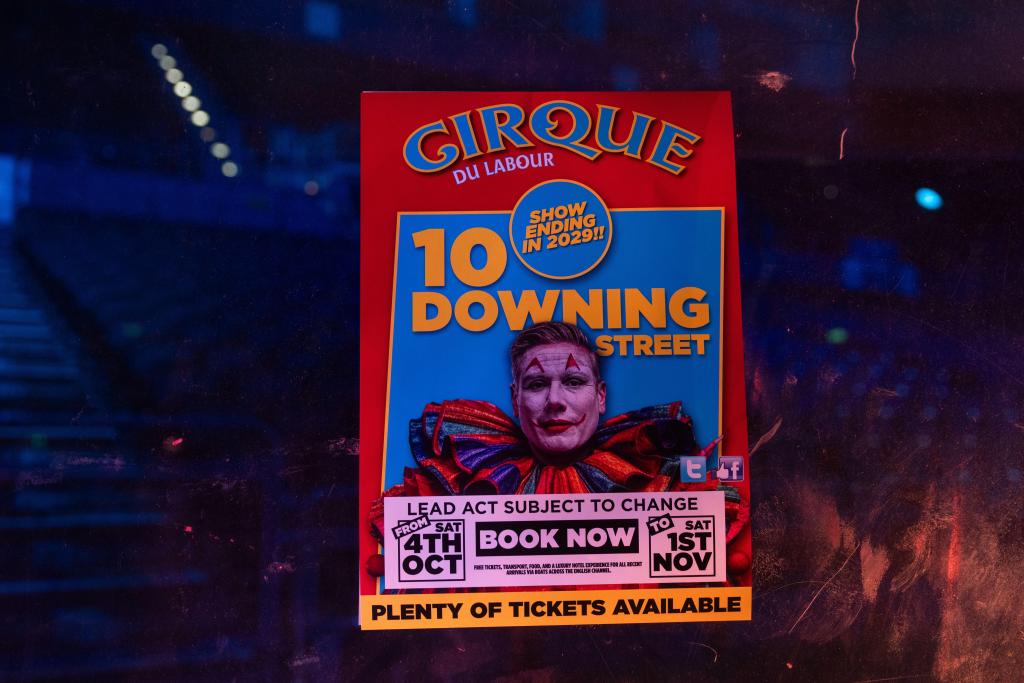It has been a traumatic week for Europe’s political and military leaders. Last Wednesday, without warning, US President Donald Trump announced that he had spoken to Vladimir Putin by telephone for 90 minutes. During a ‘highly productive call’, he and the Russian leader had ‘agreed to have our respective teams start negotiations immediately’ to bring an end to the war in Ukraine. The Ukrainian president, Volodymyr Zelenskyy, had not been informed of the conversation beforehand, much less involved.
The transactional high-handedness of Trump’s approach, ignoring the injured party in the conflict and making direct and friendly overtures to the aggressor, should not have come as a surprise. But it left European governments, focusing on that day’s meeting of the Ukraine Defence Contact Group in Brussels and preparing for the weekend’s Munich Security Conference, suddenly feeling bypassed. If Ukraine’s head of state had not been part of the conversation, the Europeans were even further from the centre of the action.
All of these ideas put the cart many miles ahead of the horse
Their collective reaction has been a peculiar one. Emmanuel Macron hastily invited the ‘principaux pays européens’ to a summit in Paris on Monday to discuss European security. By the time the leaders of the United Kingdom, Germany, Italy, Poland, Spain, the Netherlands and Denmark, as well as the secretary general of Nato and the presidents of the European Commission and the European Council, convened in the French capital, one of the main topics of discussion had become the potential composition and role of a peacekeeping force in Ukraine.
This was, remember, the day before the American and Russian negotiators had even had their first meeting in Saudi Arabia. However eager President Trump may be to achieve a settlement in Ukraine, there was something both presumptuous and detached from reality about debating how a ‘peace’ agreement could be monitored before the process had even begun.
Sir Keir Starmer was quick out of the traps. Before he reached Paris, he had written in the Daily Telegraph that he would consider deploying UK military personnel to Ukraine ‘to contribute to security guarantees’ – in other words, as part of a multinational peacekeeping (or peace-enforcing) force which President Zelenskyy had suggested would need to be 100,000-150,000-strong.
Macron had indicated a willingness to do the same months ago, but the Polish prime minister, Donald Tusk, said he would not send troops. Chancellor Olaf Scholz of Germany, meanwhile, called any discussion of peacekeeping ‘completely premature’ and ‘highly inappropriate’. He then left the summit early, burdened by the knowledge that his government faces the electorate on Sunday and his coalition is likely to be defeated.
One newspaper suggested that the UK might provide 20,000 troops. This is obviously fanciful: the most recent statistics showed that the British Army only has 74,612 regular personnel. Taking into account current commitments and readiness, the UK would be stretched to generate a force much bigger than a single brigade of 4,000-5,000.
Then a new approach was trailed in the media: the Royal Air Force could contribute to an ‘air policing’ mission, with Eurofighter Typhoon FGR4 aircraft on alert for any breaches of a settlement. Again, it would be an element of a larger effort, since the RAF only has 100 Typhoons in service, of which the majority provide air defence for the UK from RAF Coningsby and RAF Lossiemouth.
All of these ideas put the cart many miles ahead of the horse. Negotiations have barely started; the Ukrainian government has not been involved. One of the few things we do know is that Russia’s foreign minister, Sergei Lavrov, has said that the idea of a peacekeeping force, especially one comprising Nato member states, is ‘completely unacceptable’ to the Kremlin.
There is a long way to go. President Trump wants a peace agreement by Easter, which this year falls on the same day, 20 April, in the Western and Eastern Orthodox churches. The signs are that he is willing to make substantial concessions to Moscow at the expense of Ukraine.
Rehearsals of who might do what to enforce a notional settlement give the strong impression of displacement activity by European governments. Donald Trump, now repeating Kremlin lines-to-take almost verbatim and openly hostile to Ukraine, sees the prospect of a deal with Vladimir Putin. He knows he has no need of European leaders to achieve that, and they know it, so they must somehow find a nominal role. The American president said airily that he ‘wouldn’t object’ to European peacekeepers, but Russia does.
Sir Keir Starmer will visit Washington next week. Perhaps ground forces or ‘air policing’ represent a burnt offering for President Trump, but at the moment he is moving pieces around an imaginary board, while events unfold elsewhere.








Comments